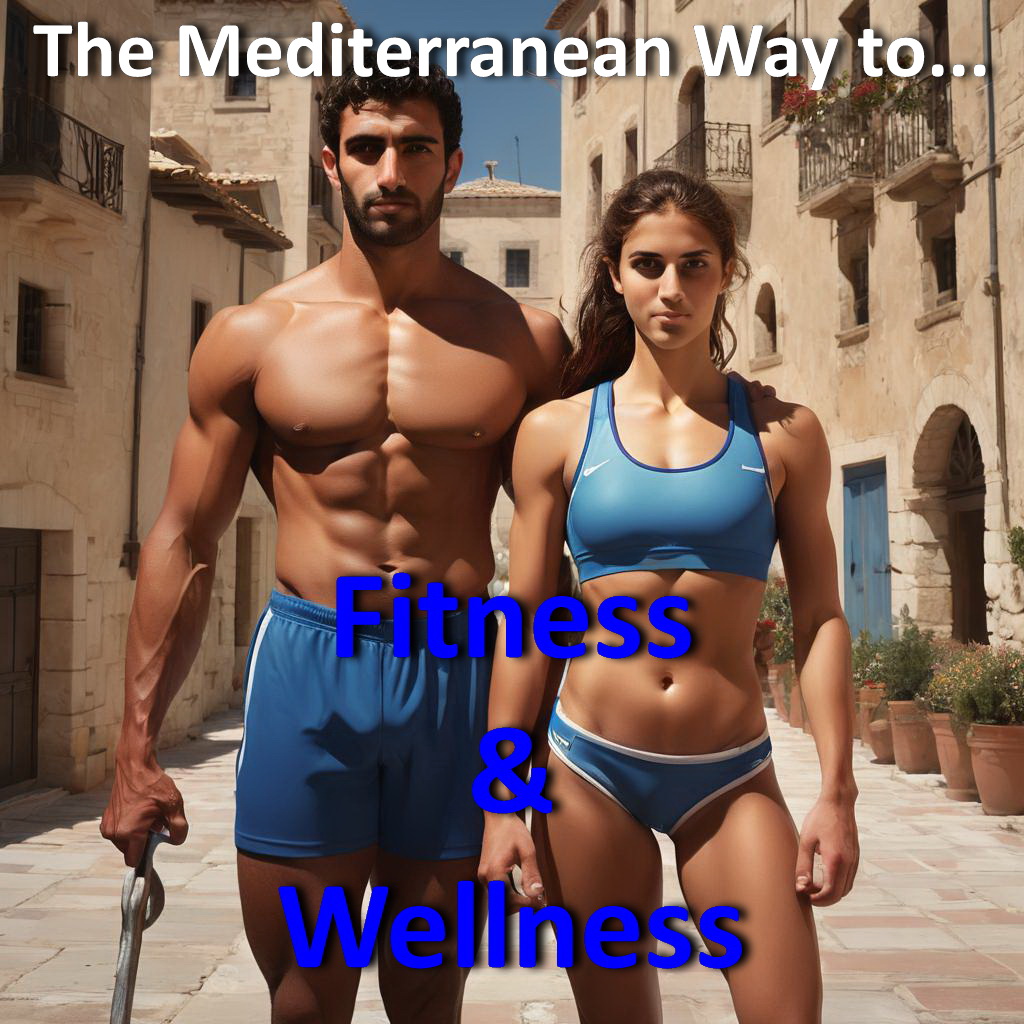The Mediterranean Way to Fitness and Wellness
Train Like an Ancient Greek Athlete to Achieve Spectacular Levels of Fitness and Performance

The ancient Greeks revered physical fitness and athleticism, viewing them as integral to achieving excellence and harmony in life. Inspired by their training methods and philosophies, the Mediterranean approach to fitness and wellness emphasizes a balanced, holistic regimen that fosters physical, mental, and emotional well-being. Let’s explore how you can train like an ancient Greek athlete to achieve spectacular levels of fitness and performance.
The Legacy of Ancient Greek Athletics
In ancient Greece, physical fitness was not merely a pursuit but a way of life. Athletes trained rigorously for competitions such as the Olympic Games, which celebrated strength, endurance, and skill. The Greek ideal of “arete,” or excellence, encompassed both body and mind, promoting a harmonious balance between physical prowess and intellectual achievement.
Core Principles of Ancient Greek Training
Functional Training: Ancient Greek athletes engaged in functional training, focusing on exercises that mimicked daily activities and enhanced overall physical capabilities. This included running, jumping, throwing, and wrestling, which developed strength, agility, and endurance.
Balanced Regimen: Training routines were well-rounded, combining cardiovascular exercises, strength training, flexibility, and skill development. This balanced approach ensured comprehensive fitness and reduced the risk of injury.
Consistency and Progression: Greek athletes trained consistently, gradually increasing the intensity and complexity of their workouts. This principle of progressive overload is essential for continuous improvement and achieving peak performance.
Mind-Body Connection: The Greeks emphasized the connection between physical and mental health. Practices such as yoga and meditation, akin to the Greek philosophy of “harmonia,” fostered mental clarity, focus, and emotional balance.
Rest and Recovery: Rest was considered as important as training. Ancient Greek athletes prioritized sleep, nutrition, and relaxation to allow their bodies to recover and grow stronger.
Modern Mediterranean Fitness Practices
Drawing inspiration from ancient Greek principles, the modern Mediterranean approach to fitness incorporates functional, balanced, and holistic training methods:
Cardiovascular Exercise: Incorporate activities such as running, cycling, swimming, and rowing into your routine to improve cardiovascular health and endurance. Aim for at least 150 minutes of moderate aerobic activity each week.
Strength Training: Engage in resistance exercises using body weight, free weights, or resistance bands. Focus on compound movements like squats, lunges, push-ups, and pull-ups that work multiple muscle groups simultaneously.
Flexibility and Mobility: Include stretching, yoga, or Pilates to enhance flexibility, mobility, and core strength. These practices improve posture, reduce injury risk, and promote relaxation.
Skill-Based Activities: Participate in sports or activities that challenge your coordination, balance, and agility. Whether it’s martial arts, dance, or team sports, these activities keep fitness fun and varied.
Mindfulness and Mental Wellness: Practice mindfulness techniques such as meditation, deep breathing, and visualization to reduce stress, enhance focus, and support emotional well-being.
Nutrition and Hydration: Fuel your body with a balanced diet rich in whole foods, similar to the Mediterranean Diet. Stay hydrated by drinking plenty of water throughout the day.
Rest and Recovery: Prioritize sleep and allow for rest days in your training schedule. Use techniques such as massage, foam rolling, and gentle stretching to aid recovery.
Creating Your Ancient Greek-Inspired Fitness Routine
To train like an ancient Greek athlete, design a routine that incorporates these key elements:
Warm-Up: Begin with a dynamic warm-up to prepare your muscles and joints for exercise. Include movements like leg swings, arm circles, and light jogging.
Cardio and Strength Circuit: Alternate between cardiovascular and strength exercises. For example, combine a 5-minute run with a set of squats, followed by a 5-minute cycle with push-ups. Repeat this circuit for 30-45 minutes.
Skill Practice: Dedicate time to practicing a skill-based activity or sport. This could be practicing a martial art, engaging in a dance class, or playing a team sport.
Flexibility and Cool-Down: Conclude your workout with stretching or a yoga session to improve flexibility and promote relaxation.
Mindfulness: End with a brief meditation or deep-breathing exercise to center your mind and enhance the mind-body connection.
Conclusion
Embracing the Mediterranean way to fitness and wellness means adopting a holistic approach that balances physical, mental, and emotional health. By training like an ancient Greek athlete, you can achieve spectacular levels of fitness and performance while fostering overall well-being. Incorporate these principles into your routine and experience the transformative power of a Mediterranean-inspired fitness lifestyle.

